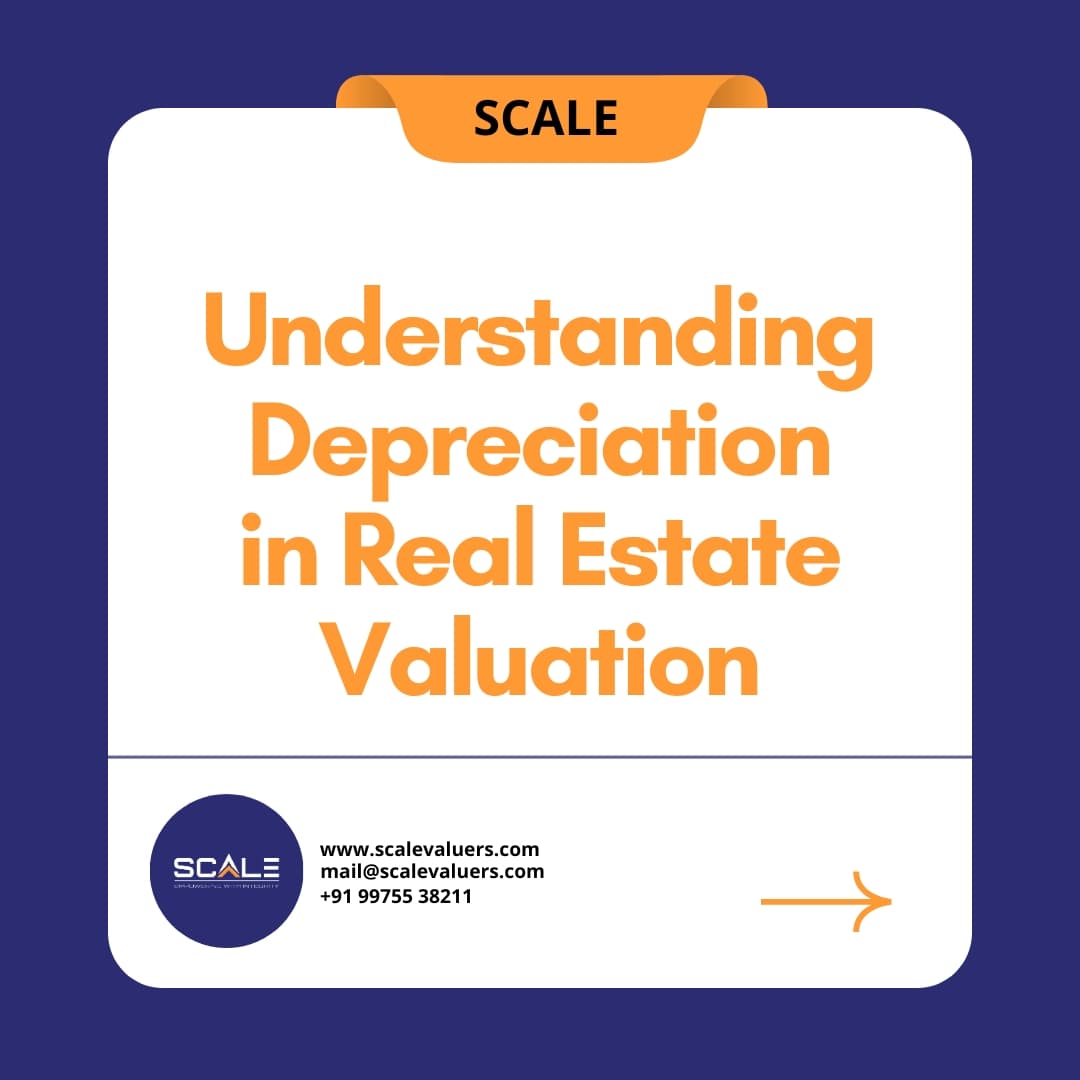Depreciation & Its Impact In Property Valuation
- Date
What Is Depreciation?
Depreciation is the gradual reduction in the value of an asset over time due to wear and tear, obsolescence or usage. It reflects the decrease in the asset’s economic utility and is commonly applied to tangible assets like buildings.
In valuation, it helps determine the current worth of an asset by accounting for its age, condition and remaining useful life. It ensures a fair assessment of the asset’s market value, especially when comparing old and new assets.
The Companies Act, 2013, as outlined in Schedule 2, furnishes information about the applicable lifespan of tangible assets. Depreciation for assets is calculated using the straight-line mathod (SLM) and written-down value (WDV) methods.
Factors causing Depreciation
1. Physical Deterioration
Over time, every property undergoes wear and tear. This natural process, resulting from use and passage of time can cause a property to degrade, leading to depreciation in its value.
2. Functional Obsolescence
As modern needs and standards evolve, older designs and layouts might become outdated. For instance, a home designed in the 1970s might not serve the needs of today’s homeowner without significant modifications.
3. Economic or External Factors
Factors outside the property itself, like a downturn in the local economy, increased crime rates or a declining neighbourhood can lead to property depreciation.
4. Legal or Regulatory Changes
Changes in zoning laws, building regulations or other legal factors can impact a property’s usability and by extension, its value.
How does depreciation affect property valuation?
- Taxes: Property owners can claim depreciation as a non-cash expense on their tax returns to reduce their tax liability.
- Financial reports: Depreciation helps make financial reports more accurate by showing how a building’s value changes over time.
- Equity: When assets lose value, it reduces the return on equity for shareholders.
How is it Calculated?
The average useful age of an independent house is approximately 60 years. To calculate the depreciation of property, you have to consider two factors – the total useful age of the structure and the number of years after construction.
Conclusion
Understanding depreciation is essential for accurate property valuation as it reflects the asset’s age, condition, and market dynamics. Depreciation impacts taxes, financial reporting, and equity, making it a crucial factor for property owners and investors alike.
If you are seeking to deepen your expertise in property valuation then, you are at the right place. Scale offers real estate valuation certification and comprehensive insights into such critical topics. By mastering these concepts, professionals can ensure precise assessments and strategic decision-making in real estate investments.
